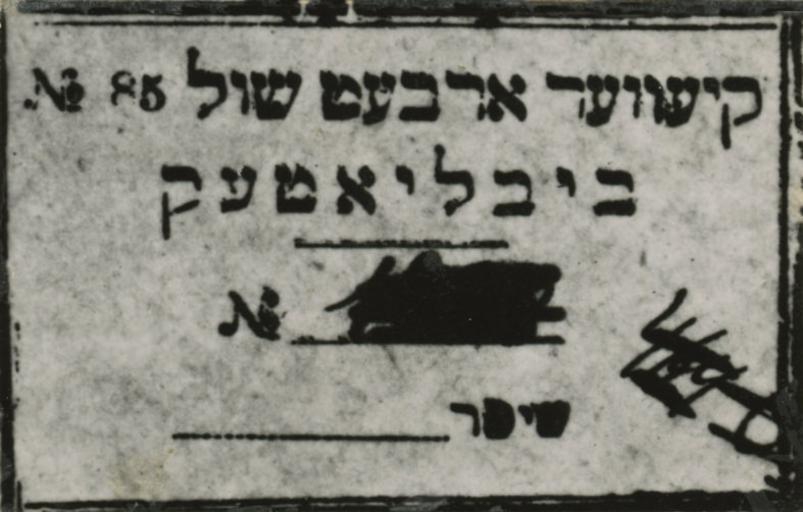MAKE A MEME
View Large Image

| View Original: | Kiev_Workers_School_no_85.jpg (787x502) | |||
| Download: | Original | Medium | Small | Thumb |
| Courtesy of: | www.flickr.com | More Like This | ||
| Keywords: hardware = epson expression 100 hardwareepsonexpression100 software = epson scan v2.20a an softwareepsonscanv220aan text After the Russian Revolution, and the subsequent civil war, the Communist leaders in the Soviet Ukraine embarked on a project to reconstruct the devastated regions along Marxist-Leninist lines. Part of this project involved a commitment to creating new schools and encouraging the population to become better educated. Much of the reasoning behind this push for education was the Soviet state’s recognition that it needed a better educated citizenry to accomplish the rapid modernization that was being advocated for by party leaders. In addition to reshaping elementary and secondary education, as well as university education, Workers schools (often called robfaks) appeared to provide further technical and ideological training to workers. Admission to one of the robfaks was contingent upon the recommendation of the local Communist party – at these schools the worker/students would receive further professional educational training, bolstered by the presence of facilities such as libraries. While most of the Workers schools conducted instruction in Ukrainian, Russian, or a mix of the two – there still were some Workers schools at which the language of instruction was Yiddish as is demonstrated by this stamp from a Workers School in Kiev. This book stamp is from a book looted by the Nazis and sorted by Colonel Seymour Pomrenze, one of “the Monuments Men,” at the Offenbach Archival Depot. There are two scrapbooks of archival markings from the books sorted at the Offenbach Depot in the Seymour Pomrenze Collection held by the American Jewish Historical Society (Call number P-933) There is a finding aid for the collection here The digitized scrapbooks are available here and here. For more information on this project check the Center’s blog: 16thstreet.tumblr.com/tagged/Offenbach-Depot Dr. Mitch Fraas, Acting Director of the Digital Humanities Forum at the University of Pennsylvania Libraries' Special Collections Center is working on a similar project for the German book stamps based on NARA microfilm of the volumes the American Jewish Historical Society currently holds. See viewshare.org/views/mfraas/offenbach-bookplates/ The Center for Jewish History would like to acknowledge the following: The American Jewish Historical Society, who graciously allowed the use of their archival materials and digital content; Mitch Fraas, Acting Director of the Digital Humanities Forum at the University of Pennsylvania Libraries' Special Collections Center, for his data and technical assistance in this project; David Rosenberg, Senior Manager for Communications, and Melanie Meyers, Senior Reference Services Librarian for Special Collections, for managing and creating the digital map; as well as Reference Services Librarian Zachary Loeb and Reference Services Assistant Ilya Slavutskiy for their work on translating and mapping. For copyright information, click here After the Russian Revolution, and the subsequent civil war, the Communist leaders in the Soviet Ukraine embarked on a project to reconstruct the devastated regions along Marxist-Leninist lines. Part of this project involved a commitment to creating new schools and encouraging the population to become better educated. Much of the reasoning behind this push for education was the Soviet state’s recognition that it needed a better educated citizenry to accomplish the rapid modernization that was being advocated for by party leaders. In addition to reshaping elementary and secondary education, as well as university education, Workers schools (often called robfaks) appeared to provide further technical and ideological training to workers. Admission to one of the robfaks was contingent upon the recommendation of the local Communist party – at these schools the worker/students would receive further professional educational training, bolstered by the presence of facilities such as libraries. While most of the Workers schools conducted instruction in Ukrainian, Russian, or a mix of the two – there still were some Workers schools at which the language of instruction was Yiddish as is demonstrated by this stamp from a Workers School in Kiev. This book stamp is from a book looted by the Nazis and sorted by Colonel Seymour Pomrenze, one of “the Monuments Men,” at the Offenbach Archival Depot. There are two scrapbooks of archival markings from the books sorted at the Offenbach Depot in the Seymour Pomrenze Collection held by the American Jewish Historical Society (Call number P-933) There is a finding aid for the collection here The digitized scrapbooks are available here and here. For more information on this project check the Center’s blog: 16thstreet.tumblr.com/tagged/Offenbach-Depot Dr. Mitch Fraas, Acting Director of the Digital Humanities Forum at the University of Pennsylvania Libraries' Special Collections Center is working on a similar project for the German book stamps based on NARA microfilm of the volumes the American Jewish Historical Society currently holds. See viewshare.org/views/mfraas/offenbach-bookplates/ The Center for Jewish History would like to acknowledge the following: The American Jewish Historical Society, who graciously allowed the use of their archival materials and digital content; Mitch Fraas, Acting Director of the Digital Humanities Forum at the University of Pennsylvania Libraries' Special Collections Center, for his data and technical assistance in this project; David Rosenberg, Senior Manager for Communications, and Melanie Meyers, Senior Reference Services Librarian for Special Collections, for managing and creating the digital map; as well as Reference Services Librarian Zachary Loeb and Reference Services Assistant Ilya Slavutskiy for their work on translating and mapping. For copyright information, click here | ||||